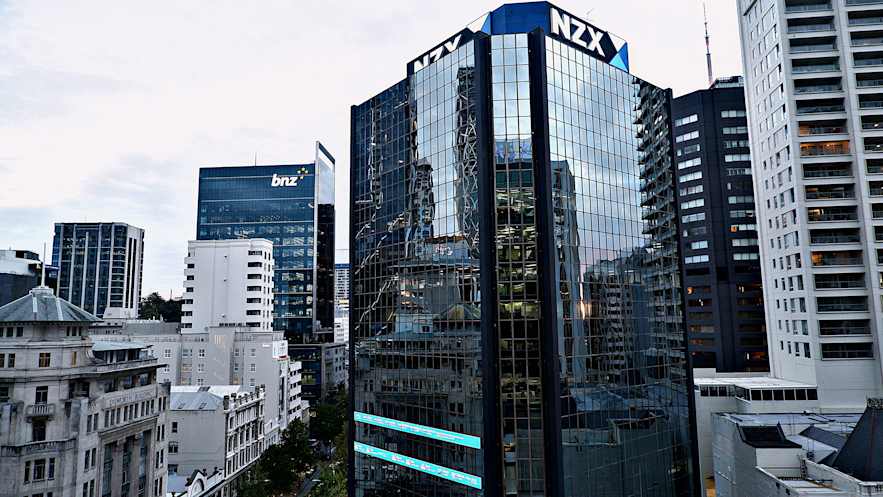Paul McBeth is the editor of The Bottom Line and Curious News, having worked at BusinessDesk for 15 years.
Local retail investors were pretty busy through the crazy week-and-a-half where US President Donald Trump declared a tariff war with the world.
It’s just not really on the NZX.
The daily volume of trading the benchmark S&P/NZX 50 index has managed to muster this past week or so has been in the 20 million bracket, with turnover of around $110 million-to-$120 million, pretty run of the mill activity since the Trump blustered his way through waging trade war against the world before whittling it down to a sharply focused conflict with China.
That’s but a fraction of the 169 million shares changing hands last month for an index reweighting day, or the 80 million-to-90 million volumes we saw through the height of the covid pandemic in March and April of 2020, or the 30 million-to-40 million volumes back in September and October of 2008 when the global financial system was crumbling in front of our eyes.
It doesn’t even match the 30 million or so averages through mid-2016 when Britain’s public surprised the world by turning its collective back on the European Union – by a sliver – in the Brexit referendum.
What gives?
After all, it’s not that local investors haven’t been snapping up bargains for their long-term dollar cost averaging strategies on the likes of Sharesies, or seeing if they can take advantage of the volatility with a little day trading on platforms such as Tiger Broking. They’ve both been busier than usual.
But the names that feature highly are US ones, not the homegrown brands that we’ve grown up with.
And that’s not to say bargains haven’t been on offer.
Sure, the NZX is touted for its defensive qualities, falling less than the rest of the world when things get grim, but also lagging behind those racing away when euphoria takes over.
Not the only ones
But we’ve seen well-regarded blue-chip companies like global logistics firm Mainfreight and infrastructure investor Infratil trading at their lowest levels in almost two years with barely a peep on whether they’ll bring out the bargain hunters.
We can bemoan the cycle being against new listings for the local stock market as much as we want, but the inability of NZX issuers to fire up the domestic investor base is disheartening.
And yes, sometimes it’s bad news that gets investors trading – Spark New Zealand changed hands more than ever before in the December quarter last year when the stock was in freefall and facing heavy bets against it.
But this is a deeper issue than simply taking yet another jab at the NZX.
Because those Millennial and Zoomer retail investors piling into crypto, leveraged ETFs and Magnificent 7 tech stocks on Wall Street are acting just as rationally as the Gen-Xers and Baby Boomers did in borrowing as much as they could to buy residential property through the 1990s and 2000s.
We all chase returns and take the risk that accompanies it.
New Zealand’s defensive stock market with its preponderance of utilities and commercial landlords who spit out reliable cash dividends might be nice in a diversified portfolio, but that obviously doesn’t cut it for those generations who feel as though they’ve been cut out of the opportunity to thrive in 21st Century Aotearoa New Zealand.
That’s not being a snowflake, that’s simply playing the cards they’ve been dealt.
And it’s going to take more than a few tweaks around disclosure rules in luring new companies to the local market if policymakers want to recapture the imagination of New Zealand’s investing public to look at home before venturing abroad.
Because we know that homespun success stories go over well.
Put your clock back for the winter
Rocket Lab remains a top traded stock among the investment platform brigade and Xero is a firm favourite for the older DIYers who weathered the turbulent early years to be sitting on one of the nation’s most successful exports.
And going public in New York isn’t easy, even if it can produce a much juicier valuation – just take a look at their offer documents and the screeds of virtual paper filling up the US Securities and Exchange Commission to see how many t’s have to be crossed and i’s to be dotted.
Is it a case that we’ve simply got our risk settings wrong?
The overhaul of securities law came against the backdrop of the finance company debacle of the mid- to late-2000s.
There was plenty of outright fraud going on there and toxic related party lending. But a big issue was the simple misstating of risk relative to reward, where investors didn’t realise that they weren’t being adequately paid for the leveraged property developments they were backing.
That reluctance to see investors lose their money flies in the face of then-commerce minister Simon Power’s regular utterance that you can’t regulate away risk, something we as a nation seem prone to attempt time and again.
Even the paternalistic approach to listing Kiwibank flies in the face of common sense, shying away from going public so institutional investors – yes, some will be KiwiSaver funds – can buy in at a cheap price as they take on the risk of funding the lender’s IT overhaul, and presumably sell down in an initial public offering to, guess who, retail investors.
If that’s the treatment retail investors face from backing New Zealand-made, maybe they are better off voting with their feet.
Image from Curious News.










